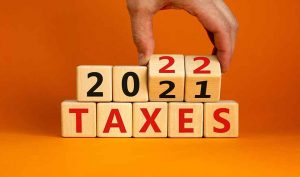
How to Choose the Right Accountant for Your Small Business: Tips from the Experts at Integrity Accountancy
Do you wish to oversee the financial well-being of your business? Or do you need help managing your small business? Finding the right accountant for your business is extremely important to ensure that your company’s fiscal health is in good hands, compliance to the tax laws and for strategic growth of the company. An accountant assists you in running your daily business in addition to handling your money. Searching for “small business accountancy near me” can be a good start. Along with that hiring the best professionals from companies like integrity accountancy can reap you many benefits. So, in this blog we will learn about some essential tips for finding the best accountant for your small business.
Some tips to find the right accountant
- Understand the needs and requirements of the company
The first step to find the right accountant for your small business is to understand your company thoroughly. Along with that you need to understand your accounting requirements. Are you trying to discover someone who can take care of your business health, do basic bookkeeping, handle payroll, and file taxes? Or are you looking for someone that can provide you financial advice and also help you in strategic planning? After understanding these questions you will find the right accountant that has the appropriate skills and experience.
- Experience and expertise
Next you have to identify the skill sets necessary for the right chartered accountant for your company. A good accountant will always have the necessary skills and experience to handle the complexities of your business. He or she will be more familiar with the financial challenges that come with small businesses and help you identify the right opportunities to save on your budget. Hiring professionals with specialized knowledge of your sector may also help you grasp your company and adhere to the best practices possible for its expansion and development. When you are interviewing for potential accountancy it is better to find the one with the most experience and expertise similar to your business. Or you can ask for references from other clients in the industry.
- Check all the certifications and qualifications required for the job
A third criterion to find the right accountant for a small business is to check for specific certifications and qualifications. For example in countries like the United States an accountant needs a certified public accountant certificate to specify his license to work in the country. Every country and state have its own requirements for an accountant, so check for one that meets your specific educational and experience criteria. The CPA credential attests to the accountant’s professionalism and level of expertise in his field. You can also look for memberships in many organizations such as CPS that allows members with high reputation and best work to participate.
- Assess Technological Proficiency
Gone are the days of hiring a local accountant with expertise and experience of several years. Nowadays a good accountant should be proficient with new technologies and should know how to use them to enhance his operations. Modern technology may assist you in daily tasks far more effectively than conventional ways, and it can also help you enhance your company operations. So, find any accountant that is familiar with modern digital tools and accounting software. They should be able to implement New Year technological solutions for your business requirements such as cloud-based systems that allow you to store bulk data more effectively. This digital software helps you in real time financial tracking and collaboration across different teams.
- Consider Communication and Availability
The criteria to find the right accountant for your small business are to find out his availability when you are in a financial crisis. He should be able to communicate with your team with initial meetings, analyze your financial data and should act faster than others. Their quick thinking and responsiveness to return calls and email is the good factor to determine the best accountant for a business. A good accountant doesn’t only keep a check on your finances but he should be a supposed system that addresses your issues in a timely manner.
- Approach to Problem-Solving
Every accountant has their own rules and ways to tackle the complexities of the financial world. Good quality of an accountant is the ability to solve problems quickly and be a strategic decision maker for your business. During the hiring process as the potential candidate how they have handled the complex task during their tenure and what steps they have taken to tackle the issue. Depending on the answers, you can find the right problem solver and quick thinker that can manage your business finances much more effectively.
Conclusion
Hence, from this blog we got to find where there are ways to identify the right accountant for your small business. Making the proper choice on time may have a big influence on financial success for an accountant. In order to solve problems more effectively at your firm, an accountant should be able to comprehend the needs of your organization, have appropriate expertise, and be knowledgeable about the latest technologies. Hiring an accountant can make all the difference, so make sure to follow these tips by Integrity Accountancy to keep your financial health in check.







